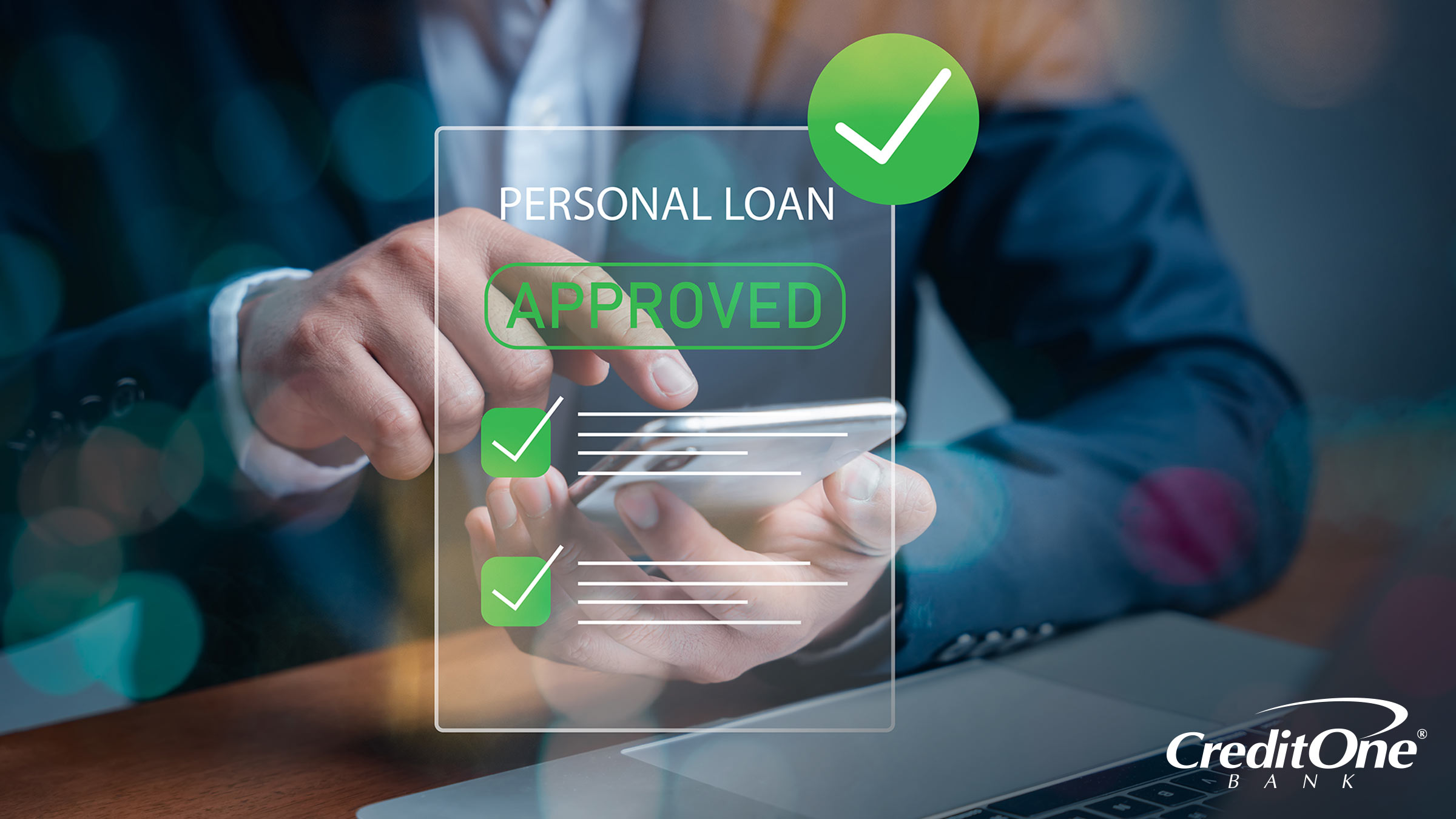
Best Uses For A Personal Loan
May 02, 2025
Topics:
Financial TipsPersonal loans can be good financial tools, but they’re not always the best choice. Here’s what they are and when you might consider one.

Introduction
Loans come in different types for different specific needs. But personal loans have more flexibility and can be used for more purposes. The way the funding happens is also unique compared to other categories of loans.
Let’s take a look at what personal loans are, how they work, and when to consider applying for one.
What Is A Personal Loan?
A personal loan provides you with money for personal expenses like home renovations, major purchases, medical emergencies, or debt consolidation. It can be either secured or unsecured, depending on your credit score and the lender’s loan parameters. An unsecured loan lends you money based on your written promise to pay it back, and a secured loan requires some type of collateral — like your vehicle title, home equity, or something of value that you leave at a pawn shop.
Personal loans are usually offered with a fixed term and a fixed interest rate, similar to auto loans, student loans, and home loans. You pay off the loan in regular installments, which is why these types of loans are commonly referred to as installment credit or installment loans.
With car loans and mortgages, the loan amount buys the asset for you up front. But with personal loans, you’ll typically get one lump sum of “cash,” which will more realistically be a check or direct bank deposit. Then you make fixed monthly payments over the course of the loan to repay it within a predetermined time period. When the loan is paid off, it’s done.
This is different from a credit card or line of credit, which are forms of revolving credit. That means you can keep borrowing against your credit line without having to pay a defined set amount — beyond your minimum payment due, if there is one.
Ideally, you want a healthy mix of different types of credit on your credit file. So if you already have multiple credit cards, a personal loan will help to increase your ratio of installment credit. And paying off that personal loan with timely payments can help you build a stronger credit history over time.
When To Take Out A Personal Loan
Taking out a new loan just to diversify your credit mix probably isn’t a great idea. Borrowing to give yourself extra spending money isn’t recommended either, because you’ll be left with less borrowing power to deal with financial emergencies in the future.
However, personal loans are well suited for many of life’s necessities:
Helping pay for medical bills
Improving the value of your home with new appliances, furnishings, or a renovation project
Financing your educational expenses like tuition or a new computer
Covering necessary short-term expenses such as moving costs
Consolidating debt into one payment
Debt consolidation is one of the most common uses for personal loans. If you’re currently paying down multiple loans and credit cards, a consolidation loan can help you streamline your payments with one lender and potentially lower your overall interest rate at the same time.
A personal loan can also be an attractive option for those unexpected life events, like large veterinary bills, car repairs, or funeral expenses. It could let you take care of necessary costs without having to worry about increasing your credit card debt, which often has among the highest interest rates.
How Does A Personal Loan Compare To A Line Of Credit?
People often consider loans and lines of credit to be the same thing, but they don’t function in the same way. Lines of credit — sometimes called revolving loans — can have a similar application process to loans, but they’re classified as revolving credit rather than installment because you can keep borrowing against them. Lines of credit also typically have variable interest rates instead of fixed, and may come with maintenance fees and transaction fees.
In some ways, loans are simpler with very few surprises. You know what you’ll owe each month, for how long, and how much the interest is. When you opt for a personal loan instead of a line of credit, you’ll also be able to take advantage of amortization.
Loan amortization is the process of paying down your balance with a specified interest rate and fixed payment period. With each installment, usually paid monthly, you’ll pay down both the interest and the principal.
If you look at an amortization schedule, you’ll see that at the beginning of the loan term, less money goes towards reducing the principal and more goes to pay interest. As the principal is paid down more and more over time, this shifts. More of each payment goes towards reducing the principal amount and less goes towards interest — which doesn’t always happen with lines of credit.
Here’s an example of a $12,000 loan with a 5% interest rate, paid over a 24-month period. Notice how the amount paid in interest decreases each month as the amount used to reduce the principal amount increases, even though the payment amount is always the same.
| Payment Amount | Interest Payment | Principle Paid | Loan Balance |
| $526.46 | $50.00 | $476.46 | $11,523.54 |
| $526.46 | $48.01 | $478.44 | $11,045.10 |
| $526.46 | $46.02 | $480.44 | $10,564.67 |
| $526.46 | $44.02 | $482.44 | $10,082.23 |
| $526.46 | $42.01 | $484.45 | $9,597.78 |
| $526.46 | $39.99 | $486.47 | $9,111.32 |
| $526.46 | $37.96 | $488.49 | $8,622.82 |
Table is for illustrative purposes only.
Paying off debt in this way can be easier because of the set schedule. By reducing the principal balance over time, you reduce the amount of interest you’ll pay. And unless the loan comes with penalties for repaying it early, you can shorten its life — and reduce your total interest paid — just by putting a little extra towards reducing your principal each month.
When shopping around for a personal loan, it’s important to be aware of potential expenses like those penalties for making pre-payments, as well as any loan origination fees, and the compounding period. The more frequently the interest is compounded, the more expensive the loan.
Not all lenders charge origination fees and pre-payment penalties, especially on personal loans. But if they do, that can also increase your costs.
Bottom Line
If you need help paying for a large expense, or you’d like to consolidate your debt, a personal loan can be a great solution. But if your goal is to build your credit history and improve your credit score, it’s not the only option.
Making regular on-time payments with a credit card can also establish a positive payment history and boost your score. And over time, those habits can help you qualify for an installment loan with better rates and terms.
The key is to always see if you pre-qualify before applying for a new credit card, because it gives you a good idea of your chances without impacting your credit score as you shop around.


